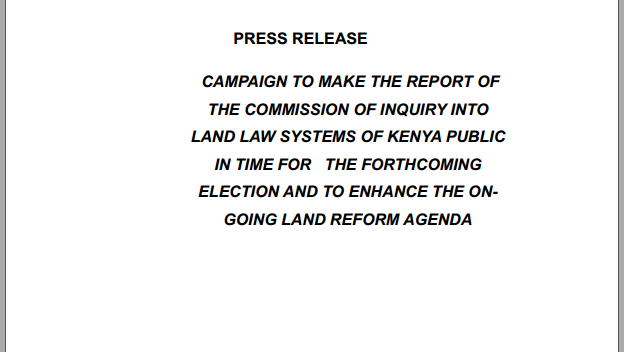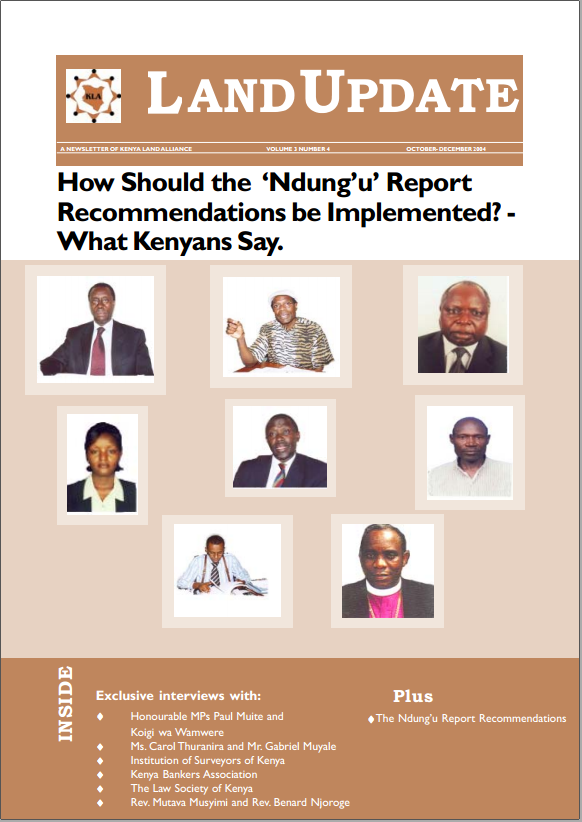Chapter Eleven of The Kenya Draft Constitution Bill at Close Scrutiny
It is significant that for the first time land is specifically recognized as a constitutional category in the Draft Constitution Bill. This is important because it gives the issue of land the level of visibility that is always associated with constitutional matters, and unlike other ordinary legislation, a Constitution can only be amended by a special majority. The chapter that deals with land in the Draft Constitution Bill is Chapter Eleven under the title Land and Property.








